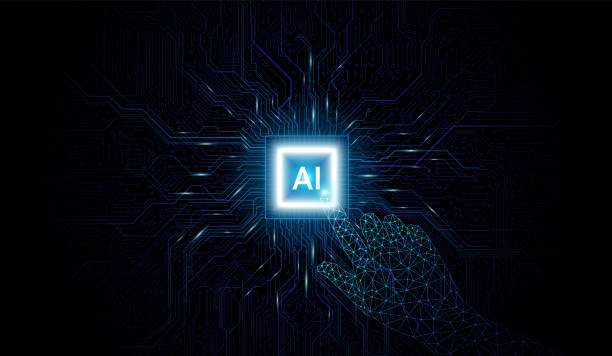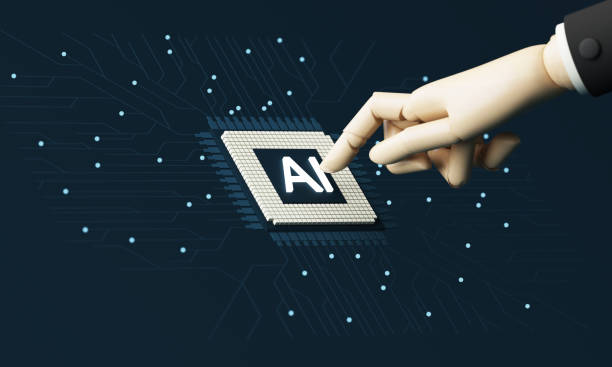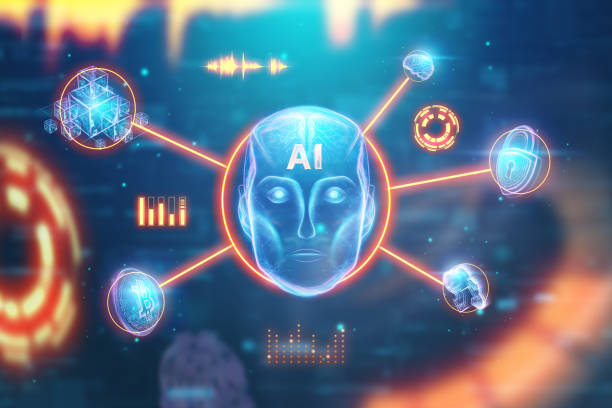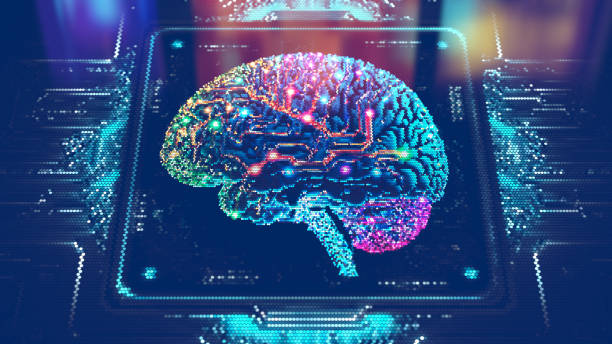What is Artificial Intelligence: Definition, History, and Key Concepts

Artificial Intelligence (#AI) is a branch of computer science that seeks to create systems capable of performing tasks that typically require human intelligence.
This definition is simple, yet very broad, encompassing a wide range of techniques and approaches.
To better understand Artificial Intelligence, it is important to examine its history and key concepts.
From the mid-20th century, when Alan Turing proposed the idea of thinking machines, to the present day, AI has witnessed significant advancements.
Concepts such as Machine Learning (Machine Learning on Wikipedia), Neural Networks (Neural Networks on Wikipedia), Natural Language Processing (Natural Language Processing on Wikipedia), and Computer Vision are fundamental pillars of this field.
Artificial Intelligence is not just a single technology, but a collection of different approaches and philosophies whose common goal is to build intelligent machines.
The endeavor to create machines that can think, learn, and make decisions has brought numerous challenges.
However, recent advancements in computational power and access to big data have enabled the development of more complex and efficient AI systems.
These advancements have been impactful not only in scientific research but also in our daily lives.
From smart voice assistants to movie and music recommendation systems, AI is gradually becoming an indispensable part of our lives.
Does your company’s website create a professional and lasting first impression on potential customers? RasaWeb, with its professional corporate website design, not only represents your brand’s credibility but also opens a path for your business growth.
✅ Create a powerful and reliable brand image
✅ Attract target customers and increase sales
⚡ Get free consultation
Types of Artificial Intelligence: From Expert Systems to Deep Learning
![]()
Artificial Intelligence can be divided into various types based on its capabilities and methods used.
One of the most common classifications divides AI into two general categories: Weak AI (Narrow AI) and Strong AI (General AI).
Weak AI is designed to perform a specific task and performs very well within that domain.
For example, a facial recognition system or a movie recommendation algorithm are instances of weak AI.
These systems are very powerful in their specialized field but cannot operate outside of it.
In contrast, Strong AI aims to create systems capable of performing any intellectual task that a human can do.
This type of AI is still in the research stages, and no complete system capable of thinking independently and creatively like humans has been built yet.
In addition to this general classification, there are also various methods for implementing Artificial Intelligence.
Expert systems use the knowledge of human experts to solve problems.
Machine learning allows machines to identify patterns using data and improve their performance.
Deep learning is a subset of machine learning that uses deep neural networks to solve complex problems.
Each of these methods has its own advantages and disadvantages and is suitable for different applications.
For example, expert systems are very useful for solving problems that require specialized knowledge, such as diagnosing diseases.
Machine learning is used for identifying patterns in large datasets, such as predicting customer behavior.
And deep learning is suitable for solving problems that require processing large volumes of data, such as facial recognition and language translation.
Choosing the right method depends on the type of problem and the available data.
Applications of Artificial Intelligence in Daily Life and Various Industries

Artificial Intelligence is no longer an abstract concept; it has numerous applications in daily life and various industries.
In daily life, from smart voice assistants like Siri and Alexa to movie and music recommendation systems on platforms like Netflix and Spotify, AI helps us perform tasks faster and easier.
In the medical industry, AI is used for diagnosing diseases, developing drugs, and providing personalized care.
In the automotive industry, AI is applied for developing self-driving cars and improving vehicle safety.
In the financial industry, AI is used for fraud detection, risk management, and providing financial advisory services.
AI applications are not limited to these cases.
In the education industry, AI is used for providing personalized learning and assessing student performance.
In the agricultural industry, AI is applied for optimizing irrigation, predicting crop yields, and identifying pests.
In the manufacturing industry, AI is used for process automation, quality control, and predicting equipment failures.
In summary, wherever data exists, AI can be used to solve problems and improve performance.
With technological advancements, AI applications are expected to become more widespread in the future.
For example, in the future, we may see widespread use of AI in customer services, supply chain management, and scientific research.
Also, AI can play a significant role in addressing global challenges such as climate change, poverty, and diseases.
Machine Learning and Deep Learning: Concepts, Differences, and Applications

Machine learning, as a subset of Artificial Intelligence, enables machines to learn from data without explicit programming.
In other words, instead of a programmer explicitly telling the machine how to perform a task, the machine uses machine learning algorithms to identify patterns in data and improve its performance.
Deep learning is a type of machine learning that uses deep neural networks with multiple layers to analyze data.
These networks are capable of learning more complex and abstract patterns in data.
The main difference between machine learning and deep learning lies in how features are extracted from data.
In traditional machine learning, important data features usually need to be manually identified and extracted by experts.
However, in deep learning, deep neural networks are capable of learning these features automatically from the data.
This makes deep learning highly suitable for solving problems that require processing large volumes of data and where important data features are not explicitly defined.
Machine learning and deep learning have widespread applications in various industries.
These applications include image recognition, natural language processing, customer behavior prediction, fraud detection, and the development of self-driving cars.
With technological advancements, the applications in these two fields are expected to expand further in the future and play a significant role in transforming various industries.
Are you tired of your e-commerce website not generating as much revenue as it potentially could? RasaWeb, specializing in professional e-commerce website design, solves this problem permanently!
✅ Increase sales conversion rate and revenue
✅ High loading speed and unparalleled user experience
⚡ Get free e-commerce website design consultation
Challenges and Limitations of Artificial Intelligence: Ethics, Security, and Bias

Artificial Intelligence, despite its immense potential, also brings numerous challenges and limitations.
One of the most significant challenges is the ethical issues related to the use of AI.
For instance, automated decisions by AI systems can lead to unfair and discriminatory outcomes.
Furthermore, the use of AI in areas such as autonomous weapons raises serious concerns about security and control.
In addition to ethical issues, Artificial Intelligence also has technical limitations.
For example, AI systems typically require large volumes of data for training.
Moreover, these systems may perform poorly when encountering new and unexpected data.
Furthermore, AI still faces limitations in understanding and processing complex and abstract concepts.
Security issues are also another significant challenge in the field of Artificial Intelligence.
AI systems can be targeted by cyberattacks, leading to data theft or manipulation.
Additionally, AI can be used to create more sophisticated and targeted cyberattacks.
Therefore, paying attention to security issues in the design and implementation of AI systems is crucial.
The Future of Artificial Intelligence: Predictions and Potential Scenarios

Predicting the future of Artificial Intelligence is challenging, but based on current trends and technological advancements, potential scenarios can be envisioned.
One common prediction is that AI will play an even more significant role in daily life and various industries in the future.
For example, we may witness widespread use of self-driving cars, smart voice assistants, and home robots.
Also, AI can play a crucial role in addressing global challenges such as climate change, poverty, and diseases.
However, the future of Artificial Intelligence will certainly not be without challenges.
Ethical issues related to the use of AI, such as discrimination and job displacement, must be seriously considered.
Furthermore, security concerns regarding cyberattacks and the use of AI in autonomous weapons must be appropriately managed.
Overall, the future of Artificial Intelligence depends on how this technology is developed and utilized.
If Artificial Intelligence is developed responsibly and with ethical and security considerations in mind, it can bring significant benefits to society.
But if these issues are ignored, AI could lead to serious problems.
Therefore, it is necessary to adopt a balanced and informed approach in the development and use of Artificial Intelligence.
Artificial Intelligence and Employment: Threat or Opportunity for the Human Workforce

One common concern about Artificial Intelligence is its impact on employment and the human workforce.
Some believe that AI will lead to job losses and increased unemployment.
While others see AI as an opportunity to create new jobs and improve working conditions.
The reality is that the impact of AI on employment is complex and multifaceted.
AI can automate some jobs, replacing human labor.
For example, repetitive and routine jobs are most at risk of automation.
However, Artificial Intelligence can also create new jobs.
For example, jobs related to the development, maintenance, and use of AI systems require a specialized workforce.
Furthermore, AI can increase productivity and efficiency across various industries, which can lead to economic growth and the creation of new job opportunities.
Additionally, AI can also improve working conditions.
For example, AI can perform dangerous and difficult tasks, helping the human workforce to focus on more creative and valuable endeavors.
How to Learn Artificial Intelligence: Educational Resources and Learning Paths

Learning Artificial Intelligence requires a combination of theoretical knowledge and practical skills.
Fortunately, there are abundant educational resources for learning AI.
These resources include online courses, books, scientific articles, and practical projects.
To begin, you can familiarize yourself with fundamental AI concepts, such as machine learning, neural networks, and natural language processing.
Then, you can deepen your knowledge in these areas using online courses and books.
Additionally, undertaking practical projects will help you strengthen your skills in implementing AI systems.
There are various learning paths for Artificial Intelligence.
Some individuals prefer to self-learn AI using online courses.
Others prefer to enroll in specialized AI courses at universities and educational institutions.
Choosing the right path depends on your circumstances and goals.
If you are looking for a fast and flexible way to learn AI, online courses can be a suitable option.
However, if you are seeking deep and comprehensive AI learning, participating in university courses might be a better choice.
In addition to formal educational resources, you can also use informal resources to learn Artificial Intelligence.
For example, you can join online AI forums and groups to exchange ideas with other enthusiasts in this field.
Also, you can attend AI conferences and seminars to stay informed about the latest achievements in this field.
Overall, learning Artificial Intelligence is a continuous process that requires effort and perseverance.
Is your company website as professional and reliable as it should be? With specialized corporate website design by RasaWeb, create an online presence that reflects your credibility and attracts more customers.
✅ Build a powerful and professional image for your brand
✅ Convert visitors into real customers
⚡ Get a free consultation now!
Popular Tools and Programming Languages for Artificial Intelligence

To implement Artificial Intelligence systems, you need to use appropriate tools and programming languages.
Python, due to its simplicity, flexibility, and abundance of libraries, is one of the most popular programming languages for AI.
Libraries such as TensorFlow, PyTorch, and scikit-learn provide powerful tools for developing machine learning and deep learning systems.
In addition to Python, other programming languages such as R, Java, and C++ are also used for AI.
Choosing the right programming language depends on the type of project and your skills.
In addition to programming languages, other tools are also used for developing AI systems.
For example, Integrated Development Environments (IDEs) like Jupyter Notebook and VS Code are useful tools for writing, testing, and debugging code.
Also, cloud platforms like AWS, Google Cloud, and Azure provide various services and tools for developing and deploying AI systems.
Overall, using appropriate tools and programming languages can accelerate the development process of AI systems and enhance their efficiency.
To start learning the Python language and its practical libraries, you can use this link.
Artificial Intelligence in Iran: Current Status and Future Outlook

Artificial Intelligence in Iran, as an emerging field, is under development and progression.
Universities and research institutions are conducting research and development in various AI fields.
Furthermore, startups and new companies are developing and offering AI-based products and services.
However, AI in Iran still faces challenges.
Lack of specialized workforce, financial limitations, and access to data are among these challenges.
Despite the challenges, the future outlook for Artificial Intelligence in Iran is bright.
The government and private sector are investing in this field.
Also, education and training in AI are expanding.
It is expected that in the future, we will witness significant advancements in Artificial Intelligence in Iran.
AI can play a crucial role in Iran’s economic and social development.
For example, AI can be effective in improving productivity across various industries, developing government services, and creating new job opportunities.
Currently, the use of Artificial Intelligence in Iran is shifting from theoretical to practical application.
Frequently Asked Questions
| Question | Answer |
|---|---|
| What is the definition of Artificial Intelligence (AI)? | It is a field in computer science that aims to create intelligent machines capable of thinking, learning, problem-solving, and decision-making like humans. |
| Mention some common applications of Artificial Intelligence. | These include self-driving cars, voice assistants (like Siri and Alexa), recommendation systems (like Netflix and Amazon), facial recognition, and medical diagnosis. |
| What is the difference between Narrow AI (ANI) and General AI (AGI)? | Narrow AI specializes in one specific task, while General AI possesses human-level intellectual ability to perform any cognitive task. |
| What is Machine Learning and its relationship to Artificial Intelligence? | Machine Learning is a branch of Artificial Intelligence that focuses on developing algorithms that allow systems to learn from data without explicit programming. |
| What are Artificial Neural Networks? | They are computational models inspired by the structure and function of the human brain, used in deep learning to process data and discover complex patterns. |
| Mention some ethical challenges related to Artificial Intelligence. | These include privacy issues, bias in data and algorithms, job displacement, and accountability in case of errors or unfair decisions. |
| What is Natural Language Processing (NLP)? | It is a branch of Artificial Intelligence that focuses on enabling computers to understand, interpret, and generate human language in a useful and interactive way. |
| How can Artificial Intelligence affect the job market? | It can lead to the automation of some routine tasks, requiring worker retraining and creating new jobs in areas of designing, developing, and maintaining AI systems. |
| What is Computer Vision? | It is a field in Artificial Intelligence that enables computers to ‘see’, understand, and interpret images and videos in the same way humans do, allowing them to recognize objects and faces. |
| What is the importance of data in developing Artificial Intelligence systems? | Data is the fuel that powers Artificial Intelligence systems, especially in machine learning. The quality and quantity of data significantly affect the accuracy and performance of models and their ability to learn and make correct decisions. |
And other advertising services from RasaWeb Advertising Agency
Smart SEO: An innovative service for increasing digital branding through user experience customization.
Smart Google Ads: A fast and efficient solution for improving SEO ranking with a focus on custom programming.
Smart Digital Advertising: An effective tool for online growth through optimizing key pages.
Smart Marketing Automation: A creative platform for improving campaign management with key page optimization.
Smart Digital Branding: An effective tool for customer acquisition through attractive UI design.
And over hundreds of other services in internet advertising, advertising consultation, and organizational solutions.
Internet Advertising | Advertising Strategy | Advertorial
Sources
What is Artificial Intelligence? A Complete GuideApplications of Artificial Intelligence in Daily LifeThe Future of Artificial Intelligence and ChallengesEthics in Artificial Intelligence: Key Considerations
? For a powerful presence in the digital world and to elevate your business, trust the expertise of RasaWeb Afarin Digital Marketing Agency. We are with you in professional website design, SEO, and content marketing.
📍 Tehran, Mirdamad Street, next to Bank Markazi, Kazeroon Jonubi Alley, Ramin Alley, No. 6



